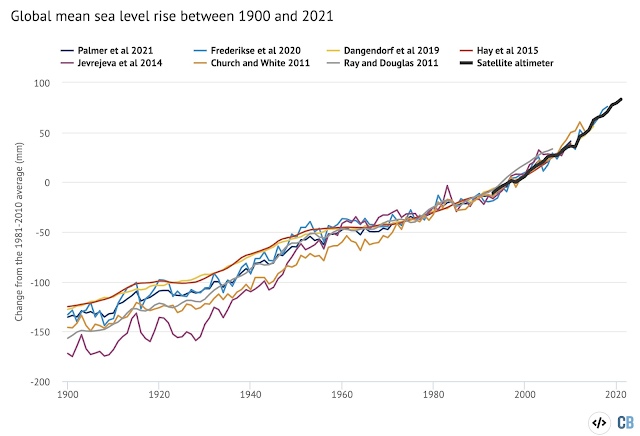Evaluating Voortman et al 2025 on Sea Level Rise

The DOE climate assessment report was published a month ago, and already hundreds of scientists have written responses criticizing the handling of the scientific evidence regarding AGW , including 85 scientists who compiled a 400+ page rebuttal and associated press release . In response, the authors of the DOE report appear to be on a PR campaign for damage control, and so Koonin wrote an op/ed for WSJ and Judith Curry took to her blog . Her blogpost attempts to defend her mistakes about sea level rise and acceleration in the DOE report by highlighting a paper that was published this year. The paper claims to show that 95% of tide gauges do not show any statistically significant acceleration, and the remaining 5% have non-climatic explanations for their observed acceleration: Approximately 95% of the suitable locations show no statistically significant acceleration of the rate of sea level rise. The investigation suggests that local, non-climatic phenomena are a plausible cau...
.png)
